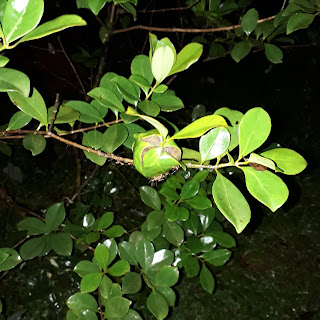My Lime Tree
 |
| My lime tree |
Lime has multiple uses.
You can make a rejuvenating drink with a little bit of its juice. A few drops
of the juice can flavour your tea delightfully and ease your belly too. Even
the otherwise bland dishes or the daal
curry can undergo a miraculous metamorphosis with a touch of lime. You can use
a slice of the fruit to deodorise your plate or your hands.
When the hybrid plant seller came last year
with a variety of saplings, I picked up a few including a lime. The lime was a
little slow to get to like me. I watered it regularly and fed it with liberal
scoops of cow dung and occasional pinches of Ammonium Phosphate Sulphate.
“Hybrid plants take their sweet time to get
used to new soil and environment,” my friend consoled me. “But once they do,
they flourish.”
He was right. After months of my patient
waiting and tender care, my lime tree began to grow. But the main stem grew up
aslant at an angle of 45o. It looked nice to see but I was worried
it wouldn’t grow much that way though it was bearing an occasional fruit.
“It’s because of the shade,” said my friend.
“It’s seeking direct sunlight.”
That’s one thing about plants: they hate to
stand in somebody else’s shadow and seek their own place in the light. “Let’s
clear that shade,” I told my friend. The trees that produced the shade were in
the wrong place anyway. So we felled them. What did the lime do then?
Instead of straightening up, it sprouted a
number of new shoots all of which began to grow straight up giving the lime an
entirely new elegant look. I stand beside that little tree almost every evening
admiring its exotic beauty.
By the side of the lime, I had also planted
a strawberry guava at the same time. The guava grew up normally without seeking
angles because it was getting all the sun it needed. But it has shown no sign
of bearing any fruit yet. A few days back some red ants appeared on it. Red
ants are the ideal natural pesticides. They eat up pests. Today I saw the ants
make their home among the guava leaves. I gave myself the hope that the ants
are foresighted: they must have seen the imminent growth of fruits on that
little tree, fruits that will invite pests which in turn will become fodder for
the ants. Nature has its own marvels. Marvel is a heavenly feeling.




How do you plan your day? I mean there is nothing that you don't do.
ReplyDeleteI don't need rest 😀
DeleteYeah I could see that.☺Btw when is your book set to release?
DeleteI was planning it for Onam but now it's postponed to New Year. I want it to be a good work.
DeleteStrange thing is...the lime and the guava tree are existing side by side in our garden and now a days(from last fifteen days) my attachment with lime has been very deep.
ReplyDeleteThat's an interesting coincidence, Jyotirmoy.
DeleteGarden has stories to share, one needs eyes and ears to hear and see them happen! And you definitely have that.
ReplyDeleteIndeed the plants can tell amazing tales.
DeleteVrey nice post...So much to learn from nature.
ReplyDelete